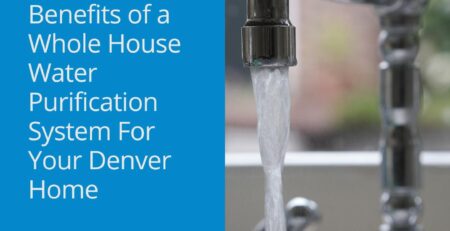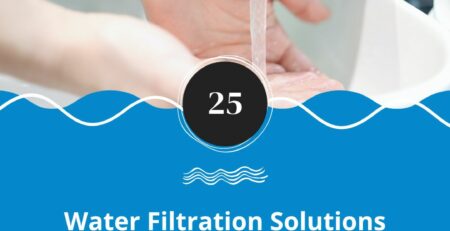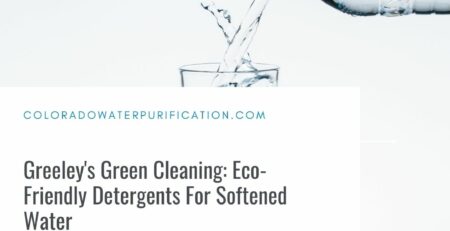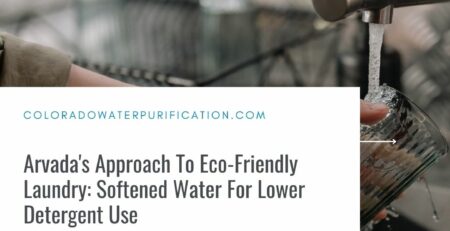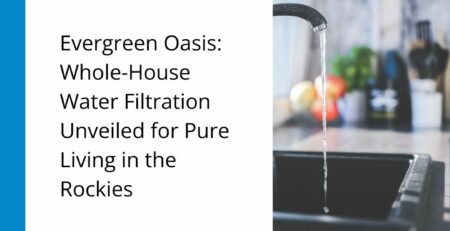The Role of Water Softeners in Enhancing Brighton’s Home Water Quality
Welcome home owners of Brighton! Are you tired of dealing with hard water in your household? Do you constantly struggle with mineral build-up, dry skin and hair, and spotty dishes? If so, then this blog post is for you. Hard water is a common issue that many homeowners face, especially those living in areas with high mineral content in their water supply. Fortunately, there is a solution: water softeners. In this blog post, we will discuss the important role of water softeners in enhancing the quality of your home’s water. From explaining how they work to outlining the benefits they provide, we’ll cover all the information you need to know about these essential devices. Say goodbye to pesky hard water problems and hello to softer skin, cleaner clothes and a more efficient home – let’s dive into why every homeowner in Brighton should consider investing in a quality water softener system.
Introduction to Brighton’s water quality and how it can affect homeowners
Brighton, a delightful seaside town in the south of England, is known for its pristine beaches and stunning seafront. However, as homeowners in the area know all too well, the quality of the town’s water can be a concern. Pollution from both runoff and sewage can have serious consequences for those who rely on the water supply, impacting everything from the taste and smell of the water to potential health problems. It’s important for homeowners to be aware of these risks and take measures to protect themselves and their families. With a little knowledge and some common-sense precautions, Brighton’s water quality needn’t be a source of worry.
The science behind hard water and why it’s a problem for households
Many homeowners have experienced the frustrating effects of hard water. But what exactly causes it? Essentially, hard water contains high levels of minerals, typically calcium and magnesium. While not harmful to human health, these minerals can cause a variety of problems for households. They can create unsightly build-up on appliances, make soap difficult to lather, and even leave a film on dishes and shower doors. Hard water can also lead to a shorter lifespan for water heaters, pipes, and other plumbing fixtures. So, if you’ve ever struggled with cleaning dishes or fighting off stubborn stains in your shower, hard water might be the culprit. But don’t worry – by understanding the science behind it, you can take steps to combat hard water and keep your home looking and running smoothly.
Benefits of using a water softener for your home’s plumbing and appliances
Hard water can wreak havoc on your home’s plumbing and appliances. Over time, the mineral buildup from hard water can cause damage, resulting in costly repairs or replacements. That’s where a water softener can save the day. Not only does it remove the harmful minerals from the water, but it also benefits your skin and hair by reducing irritation and dryness. Additionally, soft water requires less soap and detergent to create a lather, saving you money in the long run. Installing a water softener in your home is a wise investment that will ultimately lead to improved functionality and longevity of your plumbing and appliances.
Different types of water softeners available on the market and their features
When it comes to water softeners, there are a variety of options available on the market. One type is the salt-based water softener, which is the most common and works by exchanging hard water ions for sodium ions. Another option is the salt-free water softener, which uses a different type of technology to prevent buildup in pipes and fixtures without adding sodium. Thirdly, there are dual tank water softeners, which have two tanks for continuous soft water even during regeneration periods. Other features to consider when choosing a water softener include the size and capacity of the unit, as well as the ease of maintenance and installation. No matter which type of water softener you choose, the end result is easier cleaning, longer-lasting appliances, and softer hair and skin.
Step-by-step guide on how to install a water softener in your home
Are you tired of dealing with hard water in your home? Installing a water softener can solve that problem. It’s not as difficult as you may think. First, turn off the water supply to your home. Then, locate the place where the water enters your home and install the water softener before it reaches your plumbing system. After that, connect the water softener to a power source and flush the system with water to remove any air pockets. Finally, add salt to the tank and set the timer on your water softener. Voila! With these simple steps, you can start enjoying the benefits of soft water in your home.
Comparing the cost of using a water softener to potential damages from hard water
Hard water has long been a problem for homeowners, leaving unsightly stains on everything from dishware to clothing. While the use of a water softener may seem like an expensive solution, the potential damages from hard water can quickly accumulate to be much costlier. Hard water can lead to pipe damage, reduced water flow, and increased utility bills due to inefficient water heaters. In contrast, a water softener can prevent these issues, saving money on repairing or replacing damaged appliances or pipes in the long run. While the initial investment may seem daunting, the cost of a water softener is a small price to pay for the peace of mind that comes with protecting your home from the negative effects of hard water.
Tips for maintenance and troubleshooting common issues with water softeners
Having a water softener at home can be a great luxury, but it’s important to know how to maintain it properly. Over time, water softeners can experience common issues like clogs or leaks that can disrupt their function. To prevent these problems, it’s important to regularly clean the tank, filter, and brine line as per the manufacturer’s instructions. Additionally, testing the water hardness level and adjusting the settings accordingly can help avoid any issues from arising. If issues do occur, troubleshooting can be done by checking the control valve, resin tank, and drain line for any damage or blockages. By implementing these maintenance tips and troubleshooting solutions, your water softener can continue to provide you with the high-quality water you deserve.
How investing in a water softener can increase your home’s value over time
When it comes to the value of a home, every little detail can make a difference. That’s why investing in a water softener can be a smart move for homeowners looking to increase the value of their property over time. Hard water can wreak havoc on plumbing, appliances, and fixtures, leading to costly repairs down the line. With a water softener, you can protect your home from these issues while enjoying a host of benefits, including softer skin and hair, brighter clothes, and cleaner dishes. In addition, having a water softener installed can be a selling point for potential buyers who are specifically looking for a home with this feature. So if you’re looking to make a long-term investment in your property, consider the benefits of adding a water softener to your home.
Personal anecdotes from Brighton residents who have seen improvements after installing a water softener
Brighton residents who have struggled with hard water can attest to the multitude of issues it can cause. From stains on dishes to dry skin, hard water can be a major source of frustration. But for those who have installed a water softener, the improvements are nothing short of remarkable. Take, for example, John, a long-time Brighton resident who recently installed a water softener in his home. He reported that his dishes are no longer stained, his skin feels smoother, and his water-using appliances are functioning better than ever before. This sentiment is echoed by countless other Brighton residents who have seen firsthand the benefits of a water softener. For anyone dealing with the headache that is hard water, a softener might just be the solution you’ve been waiting for.
Conclusion highlighting the importance of taking proactive measures for healthier, long-lasting homes.
A home is not just a building, it’s a haven. It’s where you come to relax and spend time with your loved ones. This is why it’s essential that we take proactive measures to ensure that our homes are healthy and long-lasting. By doing so, we can protect ourselves and our families from harmful pollutants, save money on utility bills, and increase the value of our homes. Taking simple steps like using eco-friendly cleaning products, sealing air leaks, properly maintaining heating and cooling systems, and making sure our homes are well-ventilated can go a long way in creating a space that’s not only beautiful but also safe and healthy. The investment we make in our homes today will pay dividends for years to come. So let’s start taking proactive measures now to create a healthier, more sustainable home for ourselves and our families.
In conclusion, by now you’ve learned the importance of monitoring and treating your home’s water quality. Hard water may seem harmless at first, but it can wreak havoc on your plumbing and appliances. Thankfully, with the use of a water softener, you can combat this issue and enjoy numerous benefits for your home and family. Whether you’re looking for cost-effective options or top-of-the-line features, there is a water softener out there that will meet your needs. And with our step-by-step installation guide, you’ll have it up and running in no time. Plus, when you consider the potential damages from hard water compared to the cost of using a water softener, it’s clear that investing in one is a smart choice. Not only will it save you money in the long run, but it will also increase your home’s value over time. Don’t just take our word for it – Brighton residents have seen firsthand how a simple switch to a water softener has improved their daily lives. So don’t wait any longer – take control of your home’s water quality today!


